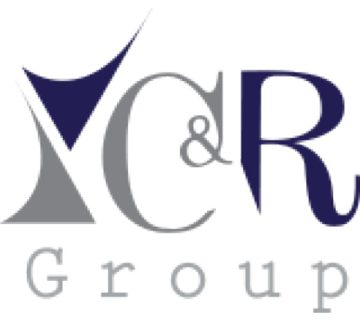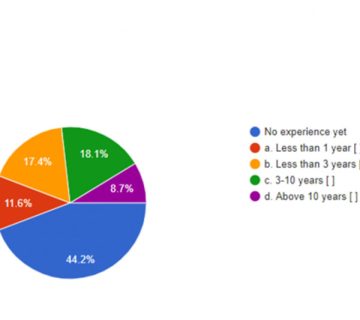In today’s world professionals work on the go, information is needed instantly. Documents whether paper or electronic format are essential components of our businesses.
According to statistics published by PWC, organizations spent about $20 (Kes. 2,000.00) in labor filing a document, about $120 (Kes. 12,000.00) finding a missing or misfiled file and about $220 (Kes. 22,000.00) to reproduce a lost document. According to the same report, about 3% of documents get misfiled while 7.5% of documents get lost. Besides, professionals spend a large chunk of their time (actually over 50% of their time) looking for the information they need rather than actually putting that information to use. Other studies show that for every dollar spent on printing documents, companies incur another $6 in handling and distribution of the paper.
In a typical office environment looking for a paper document can be a complicated process. There is no easy way, you would have to go to the storage or the filing room, cabinets, boxes and go through the specific files to get the document you require. There are times you would have to go through hundreds of files before finding the document. When the files are misplaced you will likely never find them again, this can hinder an operation or lead to unnecessary repeats. A lot of time is wasted looking for this documents leading to low productivity from the employees.
We all strive for growth, with documents the more you grow as a company the more paper is generated which needs storage space. When we think about security and privacy of information, paper documents are always at a higher risk of breaches. A natural disaster like floods, or a fire can destroy all your paper documents in an instant how much would the company loose, how do you even move on from these losses.
Access to paper files across different departments is also difficult, this is due to the fact that updates are inserted into files and may not happen consistently across all departments – the point is these ancient means of organizing and managing documents is not working for your company and is costing you, lowering your employees’ productivity, time wastage, and of essence it offers an unhealthy work environment.
Document Management Systems (DMS) are computer systems and software used to store and track scanned documents in an electronic format. They are used to create, capture, index, distribute, review, maintain, store, and conveniently retrieve documents. A Document Management System also provides workflow capabilities, metadata capture, text search and security measures.
The core functions of a DMS system are:
• Security and privacy: Think about all your business secrets, contracts, licenses, patents, your personal details and also for other employees and other confidential data, if unauthorized person ever gained access to this information they can use it negatively against you or for their benefit. A DMS ensures that only authorized persons can access particular documents.
• Convenient Retrieval: The main objective of storing documents is to retrieve them at a later date when needed. The DMS will offer a convenient and quick retrieval.
• Version Control: In certain situations, you need to maintain different versions of a document, the document management system will give you the chance to store all the versions and clearly identify them thus it makes it easy when referencing to the different versions.
• Improving Workflow: Business processes involve movement of documents from staff to staff in a department, department to department for input additions, and from the company to third parties. A document is created, audited, reviewed, approved and finally dispatched, different staff work with reference to the document as it goes through these processes.
• Regulatory Compliance: Government regulations require maintenance of different kinds of data and documents, for specific period and the requirements are often very complex. The DMS will assist in ensuring compliance with the rules and regulations.
• Cost Reduction: Paper documents carry a lot of cost, printing papers, files, filing cabinets, storage space and filing staff all accrue cost. A DMS system will ensure this costs are reduced.
A document management solution, specific for your enterprise can be a powerful time-saving tool. Depending on the solution implemented, a DMS can retrieve files by a word or phrase in a document – full text search, or can apply file categories to a document or folder. It also gives the opportunity to access documents remotely and virtually anywhere online. Different staff are given different access rights/permissions, according to their roles, such as create, audit, review, approval, etc. the DMS system provides the different passwords to access specified documents.
Document Management Systems provide a lifeline for every business. These are some of the industries that can enjoy significant benefit: –
Hospitals and Medical Practices – Local or government legislation guarantees that a patient’s privacy is protected by ensuring that medical facilities comply with strict regulations. For this reason, implementing a DMS is the solution that will provide centralized location for all filing efforts, including the features you need to simplify, streamline, and automate document-related healthcare processes.
Legal Firms – The absence of a specific record at hand can hinder the lawyers from moving forward as legal experts sometimes have to review the statements, abstracts of records and protocols retrieved from the storage in the process of progression of a new or ongoing case. With DMS, information, access, sharing and collaboration can be a lot easier.Accounting, Audit and Secretarial Firms – Maintaining client files is of utmost importance to an accounting an audit firm. Compliance to set regulations on tax and reporting can lead to inefficiency if the documents are not well managed by having a DMS this will sort you out.
Education – Admissions forms, financial aid paperwork, student records, academic records and personnel records are constantly created and need to be processed and filed appropriately. With a DMS, educational institutions have a paperless way to manage student records and operational files. Information is securely stored and shared among all components of the educational institution such as the Registrar’s office, Academic departments, Financial Aid and Accounts offices.
Other impalpable benefits of a Document Management System, includes improved customer relationships, more competitive, and overall effectiveness and efficiency of the company. Adopting a good electronic document management system in your office can bring wonderful benefits to your business.
Get a DMS That Works! dms@candrgroup.co.ke
Meshack Adonijah, BD, C&R Group



































